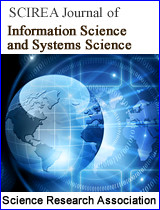The Deductibility of Categorical Syllogisms Based on the Syllogism EIO-3 from the Perspective of Dialectics
DOI: 10.54647/isss120367 23 Downloads 11802 Views
Author(s)
Abstract
This paper firstly formalizes categorical syllogisms with the help of set theory, and then conducts specific formal reasoning for them by taking advantage of generalized quantifier theory and first-order logic, and derives the remaining 23 valid syllogisms from mere EIO-3 as a basic axiom. The deductibility between different syllogisms and the non-uniqueness of their deductive sequences again exemplify and highlight the dialectical materialist worldview that ‘things are universally connected’. This knowledge reasoning pattern is not only beneficial for the in-depth development of other types of syllogistic, but also for knowledge mining in computer science.
Keywords
Categorical Syllogisms, Deductibility, Categorical Syllogisms, Knowledge Reasoning
Cite this paper
Yijiang Hao,
The Deductibility of Categorical Syllogisms Based on the Syllogism EIO-3 from the Perspective of Dialectics
, SCIREA Journal of Information Science and Systems Science.
Volume 8, Issue 5, October 2024 | PP. 194-201.
10.54647/isss120367
References
| [ 1 ] | Patzig, G. (1969). Aristotle’s Theory of the Syllogisms (J. Barnes, Trans.). Dordrecht: D. Reidel. |
| [ 2 ] | Moss, L. S. (2008). Completeness theorems for syllogistic fragments, in: F. Hamm and S. Kepser (eds.), Logics for Linguistic Structures, Berlin: Mouton de Gruyter, 143-173. |
| [ 3 ] | Hao, Y. J. (2023). The reductions between/among Aristotelian syllogisms based on the syllogism AII-3, SCIREA Journal of Philosophy, 3(1): 12-22. |
| [ 4 ] | Qiu, J. (2024). The deductibility of the Aristotelian modal Syllogism ◇EI◇O-1 from the perspective of knowledge reasoning, Transactions on Engineering and Computing Sciences, 12(1): 226-232. |
| [ 5 ] | Endrullis, J. and Moss, L. S. (2015). Syllogistic logic with ‘most’, in: V. de Paiva et al. (eds.), Logic, Language, Information, and Computation, 124-139. |
| [ 6 ] | Murinová, P. and Novák, V. (2012). A formal theory of generalized intermediate syllogisms, Fuzzy Sets and Systems, 186, 47-80. |
| [ 7 ] | Hao, L. H. (2024) Generalized syllogism reasoning with the quantifiers in modern square{no} and square{most}, Applied Science and Innovative Research, 8(1): 31-38. |
| [ 8 ] | Johnson, F. (2004). Aristotle’s modal syllogisms, in: D. M. Gabbay and J. Woods (eds.), Handbook of the History of Logic, Amsterdam: Elsevier, Vol. I, 247-338. |
| [ 9 ] | Malink, M. (2013). Aristotle’s Modal Syllogistic, Cambridge, MA: Harvard University Press. |
| [ 10 ] | Xu, J.and Zhang, X. J. (2023). How to obtain other valid generalized modal syllogisms from the syllogism □EF◇O-1, SCIREA Journal of Computer, 8(2),: 63-73. |
| [ 11 ] | Wang, H. P., and Yuan Z. L. (2024), Knowledge reasoning for the generalized modal syllogism A□MI◇-3, SCIREA Journal of Information Science and Systems Science, 8(4):129-138. |
| [ 12 ] | Zhang, C. (2022). The remaining 23 valid Aristotelian syllogisms can be deduced only from the Syllogism IAI-3, SCIREA Journal of Computer, 7(5): 85-95. |
| [ 13 ] | Wei, L. (2023). Formal system of categorical syllogistic logic based on the syllogism AEE-4, Open Journal of Philosophy, (13), 97-103. |
| [ 14 ] | Wang, H. P, and Zhang, X. J. (2024). Deductive reasoning based on the valid Aristotelian syllogism AEE-2, Sumerianz Journal of Social Science, 7(1):1-4. |
| [ 15 ] | Peters, S., and Westerståhl, D. (2006). Quantifiers in Language and Logic, Oxford: Claredon Press. |
| [ 16 ] | Chen, B. (2020). Introduction to Logic (4th Edition), Beijing: China Renmin University of Press, 2020. (In Chinese). |
| [ 17 ] | Hamilton, A. G. (1978). Logic for Mathematicians, Cambridge: Cambridge University Press. |

